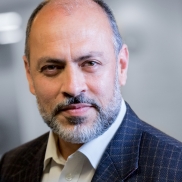Research shows that distrust of the police is consequential for public safety. However, there is a shortage of interventions that demonstrably reduce negative police interactions with the communities they serve.
A training program in Chicago attempted to encourage more than 8000 officers to adopt procedural justice policing strategies that emphasise respect, neutrality, and transparency in exercising authority. Here is a success story with lots to learn from.
It’s also important to remember that building trust is a two-way street and that the police also work to build trust with the community they serve.
Building a strong community-police trust relationship is essential for creating a safe and just community for all residents. Some ways to build trust between the community and the police include:
- Community policing: Encourage police officers to engage with residents and become familiar with the community they serve. This can be done through foot patrols, community meetings, and other forms of outreach.
- Transparency and accountability: Ensure that the police service is transparent and accountable to the community. This can be done through regular community meetings, open records, and an independent civilian review board or a board committee that is tasked to listen to the community on a regular basis.
- Cultural competency training: Ensure that police officers receive training in cultural competency and bias awareness to understand better and serve the diverse communities they serve.
- Building youth-police relationships: Encourage positive interaction between youth and police officers through mentoring programs, youth academies, and other programs.
- Building relationships with marginalized communities: Work with marginalized communities to understand and address their specific concerns and needs.
- Collaboration: Community organizations and the police working together to solve problems and address public safety concerns.
- Involving the community in decision-making: Invite community members to participate in department decision-making and planning processes.
It’s important to note that building trust takes time and effort from both the community and the police. It’s an ongoing process that requires ongoing engagement, communication, and collaboration to maintain and strengthen.
Some details about the training are here:
#OPS #CPO #policing #crimeprevention #publicsafety





Comments
drover sointeru
I have read several good stuff here. Certainly worth bookmarking for revisiting. I wonder how much effort you put to create such a great informative website.